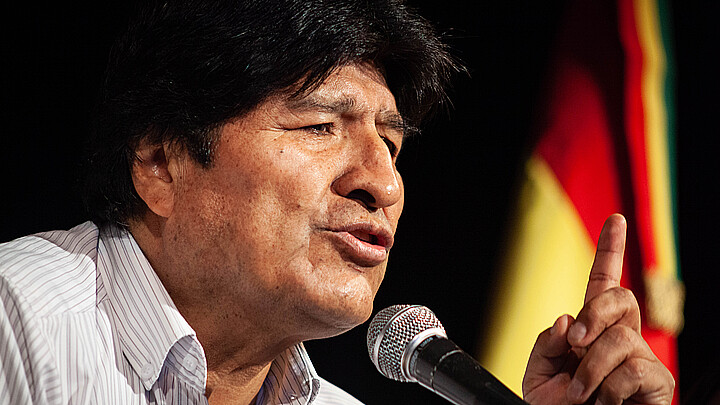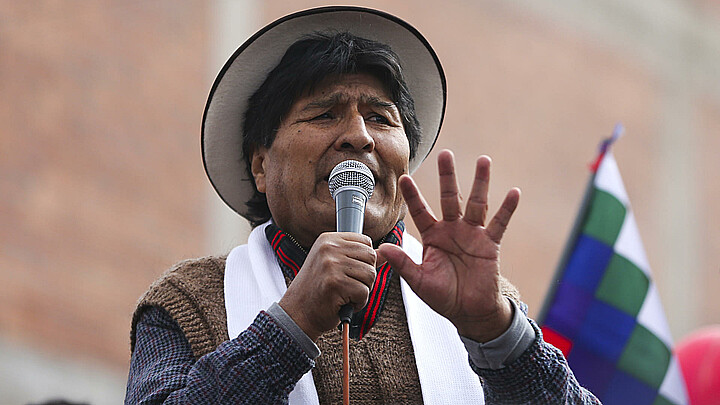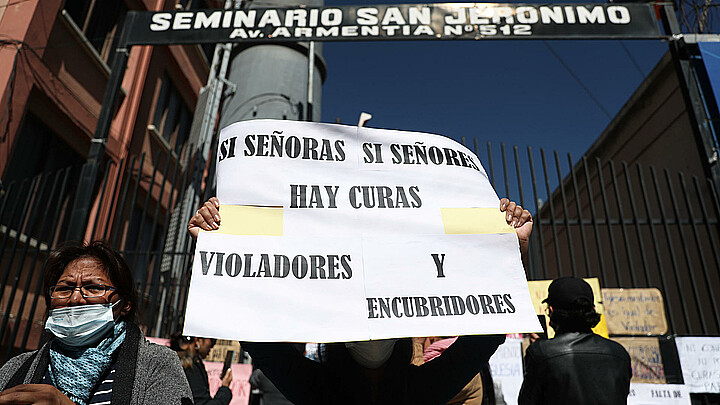Crime
Bolivia: Prosecutors seek harsh prison sentence for former interim President Jeanine Áñez
The Bolivian Prosecutor's Office accused the former president of committing “genocide” between on Tuesday, and requested a 30-year prison sentence

July 10, 2024 9:29am
Updated: July 12, 2024 7:47am
The Bolivian Prosecutor's Office accused former president Jeanine Áñez (2019-2020) of genocide on Tuesday and requested a 30-year prison sentence for her. Prosecutors also requested that sentence for three former ministers and several soldiers for the death of about 10 people at the Senkata fuel plant, in the city of El Alto, during the political crisis that the country experienced in 2019.
“The Commission of Prosecutors is going to require the maximum penalty, since the existence of the fact was proven through the documentary evidence presented with the accusation,” said the Superior Prosecutor of the State Attorney General’s Office, Sergio Fajardo, before the local press.
The oral trial against the 17 defendants will begin virtually on Sept. 2, according to the official notification from the court in charge of the case.
On Nov. 19, 2019, soldiers and police arrived at the YPFB Senkata plant and its surroundings, where civilian demonstrators were protesting after the inauguration of Áñez as the transitional president.
The Prosecutor's Office report indicates that during the operation “disproportionate repressive actions were carried out through the use of weapons with war ammunition and armored mechanized vehicles, in addition to helicopters and fighter planes, all against the unarmed civilian protesters,” according to the Bolivian News Agency.
Áñez is the first on the list of those accused, along with former Government Ministers Arturo Murillo; of Defense, Luis Fernando López; of Hydrocarbons, Víctor Hugo Zamora, and 14 other people, including former military and police chiefs.
The former Bolivian president reacted on her social networks after the publication of the formal accusation against her.
“The government's hitmen Liz Avilés, Germán Ramos and Marco A Vargas 6th Court of La Paz, are the same ones who subjected me to illegal trial in Patraña 3 (EBA) as in Patrañas 1 (terrorism) and 2 (breach of duties)" , wrote Áñez in X, in reference to the other three proceedings against him.
Los sicarios del gobierno Liz Avilés, Germán Ramos y Marco A Vargas Tribunal 6º de La Paz, son los mismos que me someten a juicio ilegal en Patraña 3 (EBA) como en Patrañas 1 (t4rrorismo) y 2 (incumpl. deberes) Aplican la tortura blanca obedientes en maltratarme y violan la CPE. pic.twitter.com/B0NGAMdoNo
— Jeanine Añez Chávez (@JeanineAnez) July 9, 2024
The former senator added in her tweet: "They apply white torture obediently mistreating me and violating the Political Constitution of the State (CPE)."
The Luis Arce administration and his political party, the Movement Al Socialism (MAS) assert that in 2019 there was a “coup d'état” against the then President Evo Morales, while the opposition maintains that the protests leading to his resignation were the result of fraud in the failed general elections of that year.
Morales announced his resignation on Nov. 10, 2019, and said he was forced by the Armed Forces, and the next day he left the country.
On Nov. 12, after two days of power vacuum, then opposition Sen. Áñez assumed office as interim president of Bolivia, after resigning from all positions in line of succession.
The Prosecutor's Office and the government considered that Áñez proclaimed herself president in violation of parliamentary regulations and that this responsibility should fall on a MAS legislator, while the former interim president's defense said the move was necessary because there was a power vacuum after Morales' resignation.
Áñez was sentenced to 10 years in prison In 2022 for another incident, known as “Coup d'état II,” in which she was accused of illegally placing herself in the line of succession in 2019.
Other criminal trials weigh against her that are still in progress. the preparatory stage.









